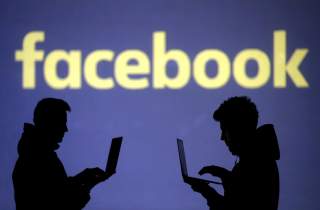Democracy at Risk: Why Social Media Endangers a Free Society
Social networks have bestowed upon people a type of power that has never seen before—and now they must use it wisely.
Proposition nine. The public should take a much stronger interest in whether corporations see CSR as stakeholder in society. The iron law of responsibility says that “In the long run, those who do not use power in a manner that society considers responsible will tend to lose it.” But it only works if citizens actively let corporations know what ‘society considers responsible’.
Proposition ten. Any company should be forced to reveal information making it possible to trace where it is doing its activities (the size of turnover), profits from activities in each country, how much they reported to tax authorities and how much taxes they paid.
More Fairness. Reduce Inequality. Increase Social Mobility.
Social mobility rose in most democracies during the first, say, seventy-five years of the twentieth century, but has since stalled or regressed. Sociological studies of the United States reveal that either people are well off and well educated and their children will be in the same social strata or they are not with little chance for themselves or their children to move upwards. The victim is meritocracy.
This is due to growing inequality making it prohibitively expensive for families with lower income to fund enrolment in top schools and top universities for their children. It also reflects the deepening gap between those who constitute the elite in a broad sense and those who do not. Insurmountable barriers between these social groups make those who are not in the upper end of social strata feel that society is unfair not giving them and their children a chance. Skills seem to be a decisive factor generating income inequality.
The effect is a feeling of being left out, nurturing discontent which in the long run threaten the cohesion of societies and nation-states removing the sense of being part of the same community. Economically, it is an enormous waste as the talent mass is not being fully used.
Proposition eleven. Take steps toward providing access to the best schools to anybody who is qualified to attend them. Ensure by government grants or tuition fee policies that all qualified students get access to the best universities. It is very much up to governments to step in and enhance social mobility.
Proposition twelve. A new social contract needs to be written. The main points of focus should be: balance between what citizens do for societies, how much they rely on society and their political influence, on how increased wealth is distributed among citizens, and how those citizens use that wealth—including how much is channeled back to support social activities.
The Decisive Factor
Ultimately, democracy depends on the role of social networks and how they focus on two issues.
First, they must realize that too much control can turn them into an authoritarian venue. On the flip side, the unregulated freedom that creates a platform for free speech and stimulates innovation makes it possible for “fake news” to exist. Someone must design a system that opens the door for those benefits and shuts the door on the risks.
Second, such a system must be designed by the citizens because they are the main users of the Internet and they will suffer most if it comes under authoritarian control or if it is dominated by fake news. Social networks have bestowed upon people a type of power that has never seen before—except maybe in Greek city states 2,500 years ago—and now they must use it wisely. They must create instruments that are capable of tackling centralization, concentration, corporate social responsibility, fairness and social mobility.
Joergen Oerstroem Moeller is a former state secretary in the Royal Danish Foreign Ministry. He is a visiting senior fellow at the ISEAS Yusof Ishak Institute, Singapore.
Image: Reuters

